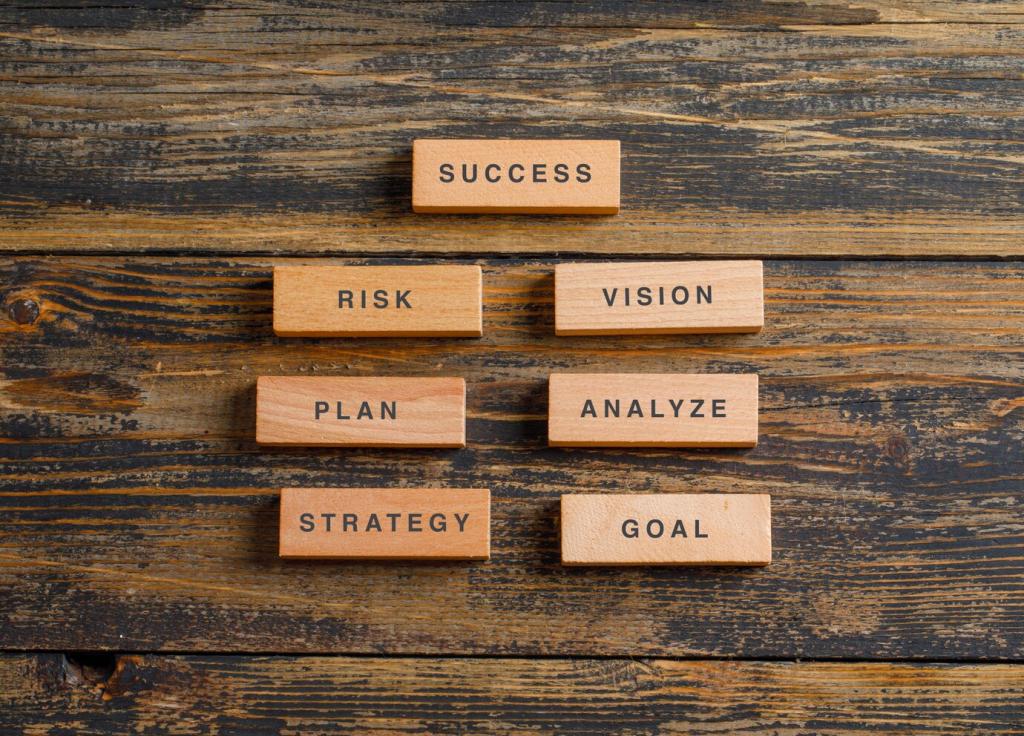Self-Reflection Methods to Enhance Professional Performance
Welcome! Today’s chosen theme is “Self-Reflection Methods to Enhance Professional Performance.” Dive into practical rituals, evidence-based frameworks, and real stories that turn quiet insight into confident action. If this resonates, subscribe and join the conversation with your own reflection wins.

Daily Micro-Reflections That Move the Needle
The 5–3–1 Debrief Ritual
Close each day with five minutes noting three wins, one lesson, and one micro-experiment for tomorrow. This compact ritual strengthens recall, boosts confidence, and ensures reflection drives action, not nostalgia. Try it tonight and comment with your adapted version.
Mirror Questions for Unsticking Tough Tasks
Ask yourself: What truly blocked progress today? Which assumption proved false? What one small step reduces friction tomorrow? These mirror questions surface hidden constraints quickly. Share your favorite prompt so others can test it in tomorrow’s sprint.
Tracking Signals, Not Just Outcomes
Beyond results, track signals like energy, focus, and collaboration quality. When signals dip, performance soon follows. A two-sentence daily note builds trend awareness and proactive adjustments. Post your top signal to monitor, and we will compare patterns together.
Evidence-Based Frameworks for Deeper Insight
Walk through description, feelings, evaluation, analysis, conclusion, and action plan. This sequence slows snap judgments and clarifies what actually changed you. Try applying it to a recent meeting and share one surprising insight you would have otherwise missed.
Evidence-Based Frameworks for Deeper Insight
Expand the “open area” by inviting feedback and sharing intent. The more others know how you think, the easier collaboration becomes. Run a quick exercise and tell us one blind spot that, once revealed, immediately improved your professional relationships.
Evidence-Based Frameworks for Deeper Insight
Ask four questions: What was supposed to happen? What actually happened? Why were there differences? What will we change? Keep it blameless and specific. Try this with your next deliverable and comment on the most actionable change you discovered.
Turning Reflection into Measurable Performance Gains
Choose three behavior KPIs tied to real outcomes, like outreach attempts, deep-work hours, and recovery breaks. Update weekly and annotate spikes or dips with reflections. Share a screenshot template request, and we will send a simple starter layout.

Story: A Project Transformed by One Honest Debrief
The Missed Assumption
A product lead realized the team kept optimizing onboarding, but churn spiked after week two. The honest debrief surfaced a quiet assumption: early activation guaranteed retention. They pivoted to second-week value moments—and engagement lifted within one sprint.
The Red Team Callout
Inviting a skeptical peer to challenge plans revealed vague user stories and untested risks. That sting powered a better test plan and tighter acceptance criteria. Share a moment when a tough question saved you weeks of rework or disappointment.
The Habit That Scaled
They institutionalized a five-minute team reflection: one win, one worry, one tweak. It felt small, but within a quarter, predictability improved and escalations dropped. Try the format this week and report a before-and-after snapshot in the comments.

Spotting Cognitive Biases Early
Label recency, confirmation, and overconfidence biases as they appear in your notes. Naming reduces their power. Ask a peer to highlight biased language in your updates. Post one phrase you will retire because it hides more than it reveals.
Emotion Labeling to Unlock Learning
Write, “I felt frustrated when the handoff failed because expectations were fuzzy.” Specific labels transform rumination into clarity and next steps. Try this today, then share how naming the feeling shifted your interpretation and your response.

One-Page Reflection Canvas
Capture goals, signals, wins, setbacks, root causes, and next experiments on a single page. Revisit weekly to spot patterns. Comment “Canvas” if you want a printable template, and we will notify subscribers when it is released.

From Voice Notes to Insights
On the commute, record a two-minute reflection: highlight, bottleneck, and one adjustment. Transcribe and tag later. This lowers friction and preserves detail. Share your best prompt for voice notes so others can experiment tomorrow morning.
Building a Culture of Reflection Across Your Team
Start-of-Week Intentions, End-of-Week Learnings
Kick off Mondays with one intention per person; close Fridays with one learning and one tweak. Keep it ten minutes, tops. Comment if you try this cadence, and share the most surprising learning your team surfaced.
Psychological Safety Signals
Leaders go first, admit mistakes, and ask for feedback by deadline. These visible behaviors normalize reflection. If you are a manager, subscribe for monthly prompts designed to thread safety into everyday workflows and conversations.
Celebrate Learning, Not Perfection
Spotlight experiments and thoughtful reversals, not only flawless execution. Recognition reinforces reflective behavior. Tell us one learning you will celebrate publicly this week, and inspire another reader to take that courageous step.
